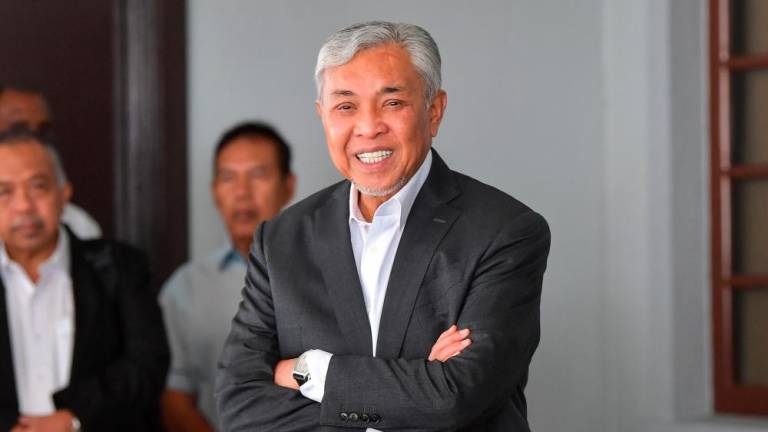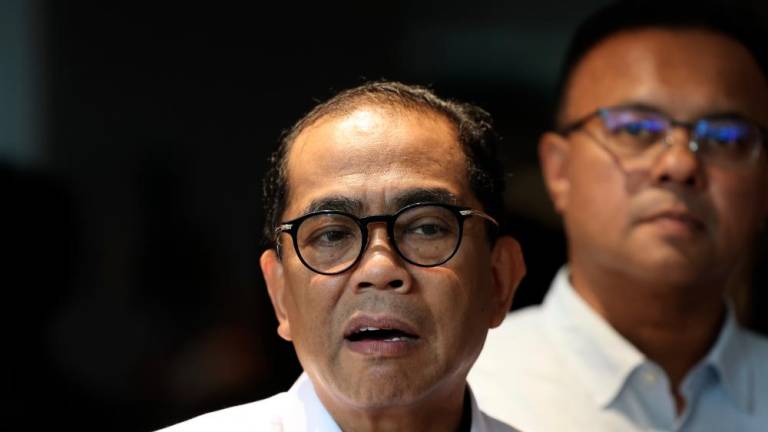KUALA LUMPUR: Spectrum usage and telecommunications industry activities in Southeast Asia will be among the main points of discussion at the first (ADGMIN1) set to be held in Malaysia this month.
Ministry of Communications and Multimedia Malaysia (KKMM) secretary-general Datuk Seri Mohammad Mentek said apart from the launch of the ASEAN Digital Master Plan 2025 (ADM2025), the two-day meeting beginning Jan 21 would, among others, be a forum for exchanging views on policies related to the use of telecommunications spectrum. ASEAN Digital Ministers Meeting
“This needs to be discussed at the ASEAN-level, so that it (spectrum) can be used efficiently and to reduce interference between frequencies.
“This is because the spectrum involving radio frequencies has various uses, including television and radio broadcasting, radar and satellite communications,“ he told Bernama here, today.
The ASEAN Digital Senior Officials Meeting (ADGSOM) and ADGMIN1 meetings are policy-level meetings for the information and communications technology (ICT) sector at the ASEAN-level to face cross-border challenges among ASEAN countries, including access to the Internet.
Communications and Multimedia Minister Datuk Saifuddin Abdullah is scheduled to chair ADGMIN1 in a closed session via teleconference.
Mohammad said Covid-19 had changed the landscape of how work is carried out under the new normal, with good Internet access required in all countries in the region which has also been affected by the pandemic.
“There is no denying that the global pandemic has helped accelerate the acceptance of digitalisation under the new norm,“ he said.
Mohammad said Malaysia was given the responsibility to prepare ADM2025, which would serve as a guide for the development of the ASEAN Digital Sector over the next five years.
ADM2025, he said, was a continuation of the previous two master plans, namely the ASEAN ICT Master Plan 2015 (AIM2015) and the ASEAN ICT Master Plan 2020 (AIM2020) in pushing ASEAN towards a safe, sustainable and transformative digital economy, as well as enabling an innovative, inclusive and integrated ASEAN Community.
“This is something that is historic for Malaysia, because we have prepared the ASEAN Digital Master Plan, which will be used as a guide for ASEAN countries in facing the digital economy, and of course, is also considered as a guide to face challenges post-Covid-19,“ he said.
Mohammad said ADGMIN1 was also hoped to help realise the development of policies that encouraged private sector participation to jointly develop high-quality ICT infrastructure and services to enhance ASEAN’s competitiveness to support the goals of the ASEAN community.
He said this included efforts to support the digital transformation of traditional sectors, as well as creating a fair and competitive digital market.
“This also includes efforts to develop a safe and reliable digital environment, such as strengthening cyber security, and ensuring digital transactions are safe.
“At the same time, (we also need to) create smart digital citizens, for example, who are confident in carrying out online transactions,“ he said.
In addition to ministers and senior officials from ASEAN member countries, the meeting also involves the participation of officials from Japan, China, the European Union, the United States, South Korea, India and the International Telecommunication Union (ITU). -Bernama














